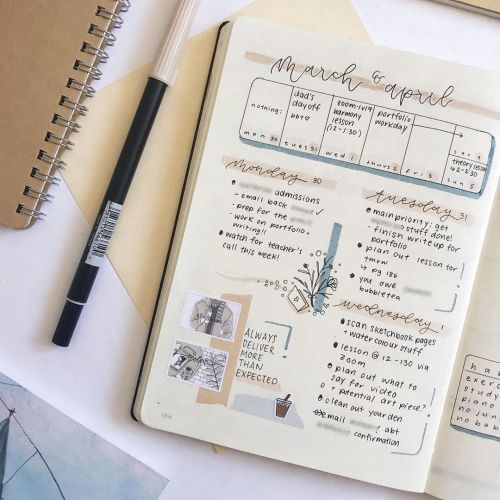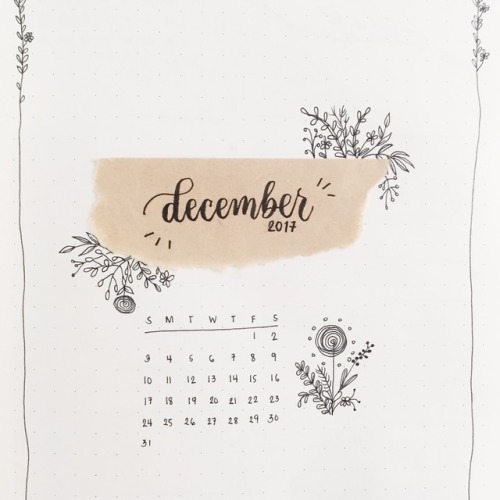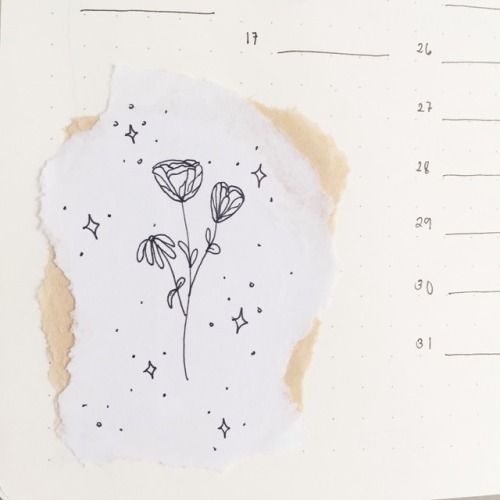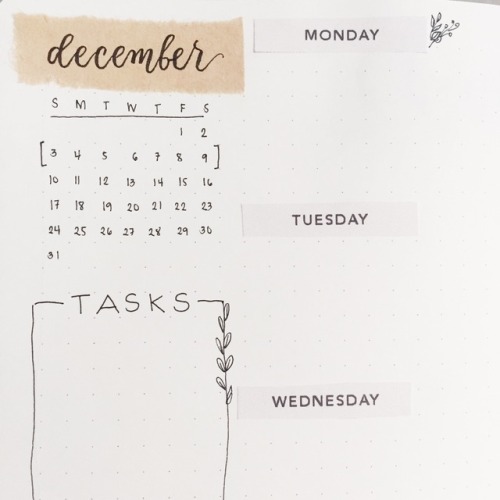I Want To Try Learning Kanji And I Think I Want To Try It Your Way W Having A Kanji And The List Of Vocabulary
I want to try learning Kanji and I think I want to try it your way w having a kanji and the list of vocabulary the kanji it is in. Was it a teacher or yourself that made those lists?
I made the lists! I made them based off of the jouyou kanji break down (this list is all over the internet). So I’m learning grade-by-grade, and just learning common vocabulary attached to those particular kanji. It’s possibly a more grueling process, but it’s helping me.
I also use WaniKani, which uses a slightly similar system of learning kanji in vocabulary. They do teach readings first, however.
More Posts from Oliviasstudyblrshit and Others
I'm a big fan of extensive reading apps for language learning, and even collaborated on such an app some 10 years ago. It eventually had to be shut down, sadly enough.
Right now, the biggest one in the market is the paywalled LingQ, which is pretty good, but well, requires money.
There's also the OG programs, LWT (Learning With Texts) and FLTR (Foreign Language Text Reader), which are so cumbersome to set up and use that I'm not going to bother with them.
I presently use Vocab Tracker as my daily driver, but I took a spin around GitHub to see what fresh new stuff is being developed. Here's an overview of what I found, as well as VT itself.
(There were a few more, like Aprelendo and TextLingo, which did not have end-user-friendly installations, so I'm not counting them).
Vocab Tracker

++ Available on web ++ 1-5 word-marking hotkeys and instant meanings makes using it a breeze ++ Supports websites
-- Default meaning/translation is not always reliable -- No custom languages -- Ugliest interface by far -- Does not always recognise user-selected phrases -- Virtually unusable on mobile -- Most likely no longer maintained/developed
Lute

++ Supports virtually all languages (custom language support), including Hindi and Sanskrit ++ Per-language, customisable dictionary settings ++ Excellent, customisable hotkey support
-- No instant meaning look-up makes it cumbersome to use, as you have to load an external dictionary for each word -- Docker installation
LinguaCafe

++ Instant meanings thanks to pre-loaded dictionaries ++ Supports ebooks, YouTube, subtitles, and websites ++ Customisable fonts ++ Best interface of the bunch
== Has 7 word learning levels, which may be too many for some
-- Hotkeys are not customisable (yet) and existing ones are a bit cumbersome (0 for known, for eg.) -- No online dictionary look-up other than DeepL, which requires an API key (not an intuitive process) -- No custom languages -- Supports a maximum of 15,000 characters per "chapter", making organising longer texts cumbersome -- Docker installation
Dzelda

++ Supports pdf and epub ++ Available on web
-- Requires confirming meaning for each word to mark that word, making it less efficient to read through -- No custom languages, supports only some Latin-script languages -- No user-customisable dictionaries (has a Google Form to suggest more dictionaries)

Korean Self-Love Quotes/Proverbs & Life Lessons
남의 떡이 더 커보인다.
Literal Translation: The other person’s rice cake is bigger than yours
Meaning: don’t compare yourself or your life with someone else’s
Life Lesson:
Especially on social media, you only see the parts that other people choose to show - the highlights, but not the behind the scenes. You’re life is not better or worse than another persons. The grass always looks greener on the other side, but you never know what that person is going through behind the scenes. Don’t try to trade your life in for another person’s just because of how things appear on the outside.
Vocab from proverb:
남 - another person, stranger
의 - possessive particle (‘s)
떡 - rice cake
더 - more
크다 - big
아/어 보이다 - to look, appear, seem
엎질러진 물이다
Literal Translation: It is spilled water.
Meaning: There is no use in crying over spilled milk.
Life Lesson:
A lot of things in life aren’t worth crying over, especially if it’s something that happened in the past. The past is the past and we have to learn to let go of the past. If you dwell on your failures, your shortcomings, your embarrassing moments, or any other terrible things you may have experienced in the past - It will keep you from living in the present. You Can Not Change The Past - no matter how much you think about it, so there’s no use “crying” over it. Don’t let the past determine who you are today. Whenever you catch yourself worrying too much about a past occurrence, tell yourself, “It already happened and I can’t control that, but I can control what I do today”.
Vocab from proverb:
엎질러지다 - to spill
물 - water
똥이 무서워서 피하니? 더러워서 피하지.
Literal Translation: you don’t avoid poop, because it’s scary. You avoid poop because it’s dirty.
Meaning: you should avoid certain things and people in your life, not because you are scared, but because it will disrupt your peace and happiness.
Life Lesson:
If at all possible try to remove or minimize contact with toxic people in your life - even if that just means distancing yourself from them mentally. Also avoid overtly negative and toxic situations whenever you can, because it can improve your mental health and overall happiness. Holding on to grudges, anger, sadness, etc. can also be harmful to your mental health - It may be hard to hear but some things you have to let go of. For yourself and your peace of mind. Forgive yourself of any past mistakes or failures and allow yourself to move forward.
Vocab from proverb:
똥 - poop
무섭다 - be scared of
아/어/해서 - because
피하다 - to avoid
니? - informal question ending
더럽다 - to be dirty
지 - shortened form of 지요 / 죠
(when speaker confirms something they thought the listener already knew)
말을 냇가에 끌고 갈 수는 있어도 억지로 물을 먹일 수는 없다
Literal Translation: You can lead a horse and go to a stream, but you can’t make it drink water through its own will
Meaning: You can lead a horse to water, but you can’t make him drink
Life Lesson:
You can’t force someone to do something that they don’t want to do. You can’t change someone who isn’t willing to change. You can’t save someone who doesn’t want to be saved. You can’t help someone who doesn’t want to be helped. There are many ways to say it, but the overall message is the same.
On the opposite side of the coin, It’s a great idea to be open and willing to positive changes and to growth. In life you want to always be growing and not static - unless your perfect (which no one is). Sometimes we may feel static and like we are going no where no matter how hard we try to move. In those cases, either you need to make a change and do something a bit different or you are moving forward but it’s just so slowly that you don’t notice it - taking a step back and looking at your situation objectively can sometimes help.
Vocab from proverb:
말 - horse
냇가 - stream (of water)
끌다 - to lead
고 - and
가다 - to go
ㄹ 수 있다 - can do
아/어도 - even if
억지 - force
(으)로 - by (explain methods)
억지로 - by force
물 - water
먹이다 - to feed, make eat/drink
ㄹ 수(는) 없다 - can’t
(the 는 adds emphasis)
That's all for this post! Which proverb is your favorite?

Spanish Vocab List - El bosque de la bruja / The Witch’s Forest

I started this list all “let’s talk about trees and flowers” and then it took a hard turn into “now say you meet Baba Yaga in the forest…” and I’m not going to apologize for the spoopy witchy vibes
la bruja = witch [also technically you can see/use el brujo for “male witch” or “warlock” though often “witch” in English comes across as distinctly feminine]
el aquelarre = a coven, a witches’ coven
la hora bruja = the witching hour la hora de brujas = the witching hour
la brujería = witchcraft
el curandero, la curandera = healer [sometimes santero/a which has multiple meanings - it can be “witchdoctor” but also a practitioner of santería which is a mix of religious and folk traditions]
el hechicero, la hechicera = sorcerer, sorceress
el mago, la maga = mage / magician
el encanto = enchantment, charm / magic spell
el hechizo = magic spell, charm, hex
la maldición = curse
el maleficio = curse
el mal de ojo = evil eye
la caldera = cauldron [or “caldera” of a volcano]
el ermitaño, la ermitaña = hermit, recluse
la escoba = broom
la magia = magic
mágico/a = magic, magical
el hado = Fate los hados = the Fates
el hada, las hadas = fairy, fairies el hada madrina = fairy godmother
el/la vidente = seer el clarividente, la clarividente = clairvoyant, seer
el/la médium = spirit medium
la nigromancia = necromancy el/la nigromante = necromancer
la rueca = spinning wheel
la manzana envenenada = poison apple
malvado/a = evil, wicked
malo/a = bad, evil
bueno/a = good
la guarida = lair, den
lanzar un hechizo/encanto/maleficio = to cast a spell/charm/curse
la poción = potion
elaborar = to brew, to create [in other contexts it’s “to elaborate”, but in the context of food or drink it means “to make” in the sense of “to labor over” - the idea here is that it requires time and effort to fully make it and get everything right, so it’s used for “brewing alcohol” or any mixture that requires significant time or specialized creation, and potion making in a fantasy setting]
~
el bosque = the woods / forest / woodland el bosquecillo = small forest [sometimes “copse of trees”]
la selva = forest [often more wild] / jungle
el jardín = garden
el huerto (de fruta / de frutales) = orchard el huerto = vegetable garden, personal garden [el huerto generally means “a garden for growing food” and can be either “(vegetable) garden” or “orchard”, but in English an “orchard” is specifically more “fruit”; but it could be either]
la arboleda = grove, collection of trees
el sol = sun
la luna = moon
la estrella = star
la nube = cloud
la lluvia = rain
la nieve = snow
la tormenta = storm la tempestad = storm, tempest
el rayo = lightning / bolt, lightning bolt, thunderbolt
el trueno = thunder
el granizo = hail / hailstone
la niebla = fog
la neblina = mist, fog
~
el amanecer = dawn
la mañana = morning
el mediodía = midday, noon
la tarde = afternoon / evening
el atardecer = evening
el crepúsculo = twilight
la noche = night
la medianoche = midnight
la madrugada = early morning, the wee hours of the morning
la víspera = eve (of something), the night before
el ocaso = sunset
diurno/a = day (adj), daytime / diurnal, awake during the day
nocturno/a = night (adj), nighttime / nocturnal, awake at night [as a general example las clases nocturnas mean “night classes” which is literally “classes at night”… as opposed to las clases diurnas which would mean “daytime classes”; in the context of school you could say tengo una clase nocturna y otras diurnas “I have one night class and others during the day”]
~
el árbol = tree arbóreo/a = arboreal, related to trees
el arbusto = shrub, shrubbery
el seto = hedge
la madera = wood
el tronco = trunk / log [also in anatomy “torso”]
el tocón = stump (of a tree)
la leña = firewood, log (for firewood usually) el leño = a log el leñador, la leñadora = woodcutter, lumberjack
la corteza = bark (of a tree) [also means “crust” for bread or the earth]
la copa (de árbol) = canopy las copas = canopy (of many trees)
la rama = branch
la raíz = root
la savia = sap [sometimes it also means “lifeblood” or “vitality” or “vigor”]
la hoja = leaf [or “blade”, or “sheet of paper”]
la flor = flower
el pétalo = petal
la semilla = seed
el tallo = stalk / stem
la hierba = grass / herb [sometimes spelled yerba] el césped = grass, lawn
la hierba mala = weed [lit. “bad grass”]
la especia = spice
la vid = vine
marchitado/a = withered, shriveled, dried up
la espina = thorn espinoso/a = thorny
la baya = berry
la hiedra = ivy la hiedra venenosa = poison ivy
el hongo = mushroom, fungus la seta = mushroom, toadstool el champiñón = mushroom [idk if it’s used everywhere but you see this at least in Spain for edible mushrooms sometimes]
el moho = mold
el musgo = moss
el liquen = lichen
la zarza = bramble, briar
silvestre = wild, growing in the wild
comestible = edible
el veneno = poison, venom envenenar = to poison venenoso/a = poisonous, venomous envenenado/a = poisoned, having poison in it
letal, mortal = deadly
~
el roble = oak
el arce = maple
el sauce = willow el sauce llorón = weeping willow
el fresno = ash tree
la pícea = spruce
el acebo = holly
la haya = beech
el pino = pine tree
el corno / el cornejo = dogwood
el álamo = poplar
el alcornoque = cork tree
la adelfa = oleander
la secoya = sequoia / redwood
el mangle = mangrove el manglar = mangroves [a collection of mangroves]
~
la rosa = rose
la violeta = violet
el lirio = lily [sometimes la azucena]
el jacinto = hyacinth
la hortensia = hydrangea
el girasol = sunflower
la malva = mallow [malva can also be “mauve”; also el malvavisco is “marshmallow”… literally “sticky/goopy/viscous mallow”]
la malvarrosa = hollyhock
el botón de oro = buttercup [lit. “gold button”]
la digital = foxglove
el narciso = daffodil, narcissus
la lavanda = lavender
la lila = lilac
la nomeolvides = forget-me-not
el loto = lotus
la menta = mint
la caléndula = marigold
la belladonna = nightshade
el acónito = aconite / aconitum, monk’s hood, wolf’s bane el matalobos = wolf’s bane [lit. “kills wolves”]
el muérdago = mistletoe
el rocío = dew, dewdrop, morning dew
el ajo = garlic el diente de ajo = clove of garlic [lit. “tooth of garlic”]
la cebolla = onion
la calabaza = pumpkin / gourd
el maíz = corn [also el elote in some countries] la mazorca = corncob, ear of corn
el trigo = wheat
la salvia = sage
el jengibre = ginger
la canela = cinnamon
el diente de león = dandelion [lit. “lion’s tooth”]
la escoba de bruja = witch hazel [lit. “witch’s broom”] el avellano de bruja = witch hazel [lit. “witch’s hazel”]
la pimienta = pepper [spice]
la sal = salt rociar sal = to sprinkle salt espolvear sal = to sprinkle salt / to dust with salt
~
la hoz = sickle
el arado = plow
la hoguera = bonfire / campfire, fire pit
el hogar = home / hearth
la guadaña = scythe
la cosecha = harvest
el arco = bow / arch
la flecha = arrow
el mortero = mortar el molcajete = mortar [some countries, especially Mexico]
la mano = pestle [otherwise it’s “hand”]
el mortero y mano = mortar and pestle
moler = to grind molido/a = ground
el molino = mill
la tabla / el tablón = floorboard, wooden board
la viga = beam / rafter
el umbral = threshold
el muro = wall, outside wall, boundary line
la cerca = fence la valla = fence
la ciudad = city
el pueblo = town / people, population
la aldea = town, small town
la frontera = frontier, border
el claro = clearing (in a forest), glade
la choza = hut
la casita = little house la cabaña = cabin / cottage
la granja = farm
la finca = plantation, estate, farmhouse
la paja = straw el tejado de paja = thatched roof [lit. “straw roofing”]
el taller = workshop
~
la cueva = cave
la caverna = cavern
la gruta = grotto / undercroft
la roca = rock
la piedra = stone
el monte = hill, mountain / wilderness, forested area
la montaña = mountain
la sierra = mountain range [or a “saw” as a tool]
la colina = hill
la falda = slope [in clothes la falda is “skirt”]
el pantano = swamp / bog / mire
la ciénaga = swamp / bog / mire
el lodo = mud lodoso/a = muddy
el fango = mud / silt fangoso/a = muddy
el río = river el riachuelo = little river, stream
el lago = lake
el estanque = pond
el arroyo = stream el arroyuelo = brook, creek
el mar = sea
el océano = ocean
la orrilla = shore
la marea = tide
la arena = sand
~
el ciervo = deer, stag la cierva = deer, doe
el venado = deer [can exist in feminine as well… this word also sometimes gets translated as “hart”; also sometimes venado is the word for “venison” or deer meat]
el lobo, la loba = wolf [la loba is sometimes “she-wolf” in some contexts]
el oso, la osa = bear [la osa is sometimes “she-bear”]
el búho = owl
la lechuza = owl [thing barn owls or snowy owls; the owls with a flatter looking face; a Lechuza is also sometimes a witch or evil spirit who snatches children said to be bird-like]
el cuervo = crow la corneja = raven [in general, el cuervo is used for both “crow” and “raven” even in literature, though el cuervo and la corneja are different technically]
el murciélago = bat
el sapo = toad
la rana = frog
la serpiente = snake, serpent la víbora = viper, snake la culebra = snake [more literary]
el conejo = rabbit la liebre = hare, rabbit
el gato, la gata = cat
la rata / el ratón = rat, mouse [largely interchangeable]
la mosca = fly
el mosquito = mosquito
la luciérnaga = firefly, lightning bug
la libébula = dragonfly
la pluma = feather
el diente = tooth
el colmillo = fang
el ala = wing [technically feminine; el ala, las alas]
la lengua = tongue
el hueso = bone
la calavera / el cráneo = skull
el cuerno = horn
el asta, las astas = antler, antlers [technically feminine]
la piel = skin / hide, fur [also piel can be “leather”; also the word el cuero is “leather” though not always as common]
el caracol = shell, seashell
el caparazón = shell, carapace
el polvo = dust
la ceniza = ash
la sangre = blood
~
el enano, la enana = dwarf
el elfo, la elfa = elf
el fantasma = ghost
el gigante = giant
el ogro = ogre
el trol = troll [creature and internet troll]
hermoso/a = beautiful apuesto/a = handsome, good-looking
bello/a = beautiful [more intense than hermoso/a]
embrujado/a = bewitched / haunted
la casa embrujada = haunted house la casa encantada = haunted house
la fiera = fiend, beast, wild animal fiero/a = wild, ferocious
feroz = ferocious, wild
la bestia = beast
el monstruo = monster
el castillo = castle
la torre = tower
la mazmorra = dungeon el calabozo = dungeon [in modern Spanish el calabozo is the word for “holding cells” in a police office or a place where someone is detained; in older Spanish it can be used as “dungeon”]
el don = gift
el poder = power, ability poderoso/a = powerful, mighty
el truco = trick
la moraleja = moral
encantar = to enchant / to delight
convocar = to summon
conceder = to grant, to bestow / to concede
bendecir = to bless bendito/a = blessed
maldecir = to curse maldito/a = cursed

week 40 ; sept. 28 - oct. 4 weekly spread


08.21.22
The first week’s been pretty cool, the teachers can be intimidating but the experience is fun. I think I accidentally grew into those people who take cool notes with memo pads, annotations, and highlights during class hehe <33


Hey guys!
I’m so excited to share this language learning challenge that I created with you!
It’s called Brick-By-Brick Language Learning Challenge and it’s made for anyone who already knows the basics of their target language and wants to improve their knowledge :)
If you participate in this challenge, make sure to use the hashtag #brickbybricklearning and to tag me here on tumblr (@mylinguisticadventure) and on instagram (@mylinguisticadventure).
That’s it for now. Happy language learning!
-
 still-superwholocked liked this · 4 years ago
still-superwholocked liked this · 4 years ago -
 cupidgames liked this · 4 years ago
cupidgames liked this · 4 years ago -
 oliviasstudyblrshit reblogged this · 5 years ago
oliviasstudyblrshit reblogged this · 5 years ago -
 obiiviousolivia liked this · 5 years ago
obiiviousolivia liked this · 5 years ago -
 the-zombie-philosophy liked this · 6 years ago
the-zombie-philosophy liked this · 6 years ago -
 hananim-eunhye liked this · 6 years ago
hananim-eunhye liked this · 6 years ago -
 erasetheborder liked this · 6 years ago
erasetheborder liked this · 6 years ago -
 akl-no-arashi reblogged this · 6 years ago
akl-no-arashi reblogged this · 6 years ago -
 genericweebblog-blog liked this · 6 years ago
genericweebblog-blog liked this · 6 years ago -
 jibunstudies reblogged this · 6 years ago
jibunstudies reblogged this · 6 years ago






